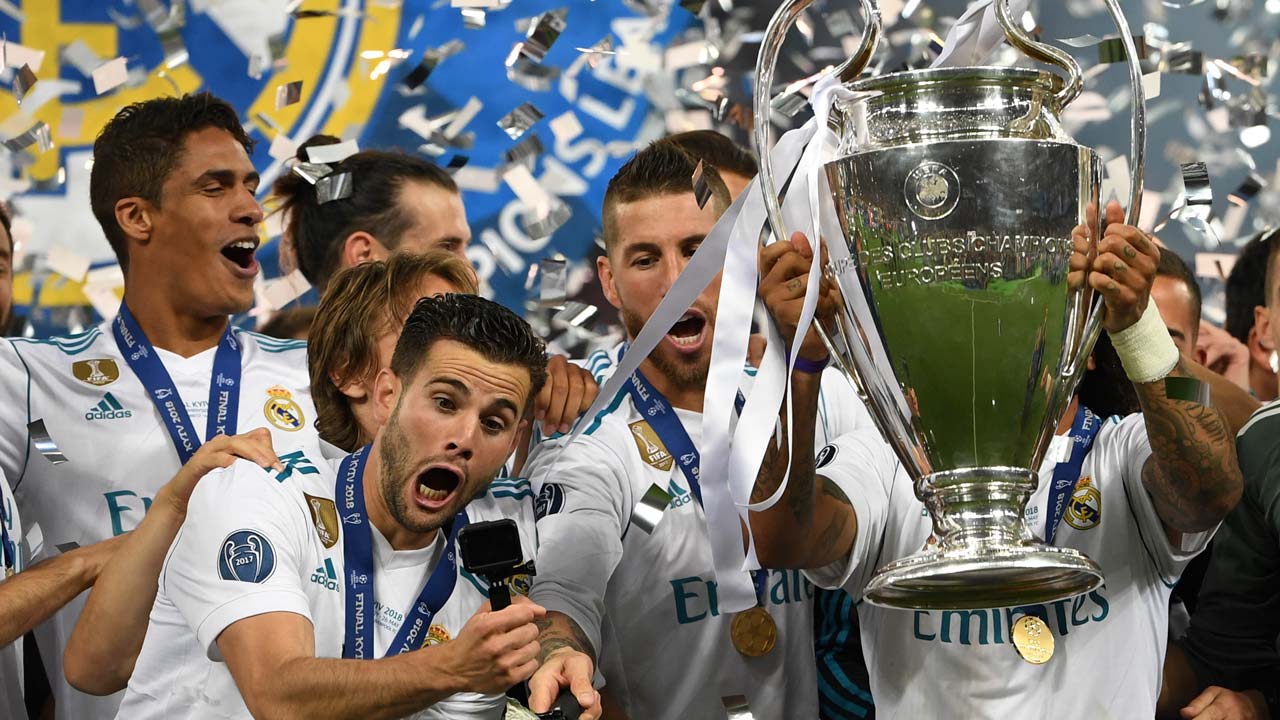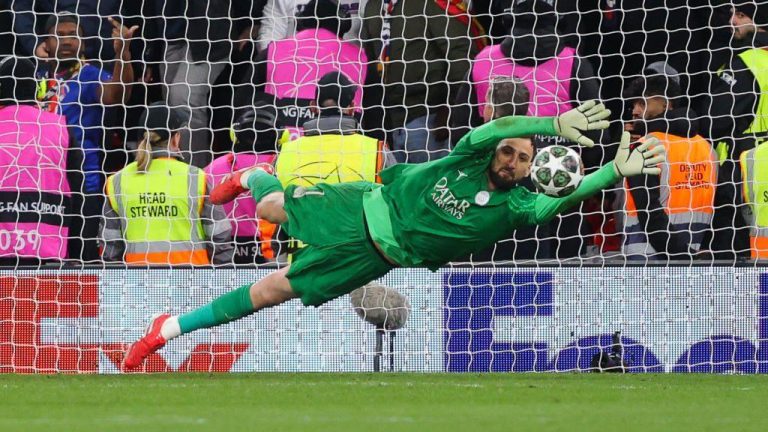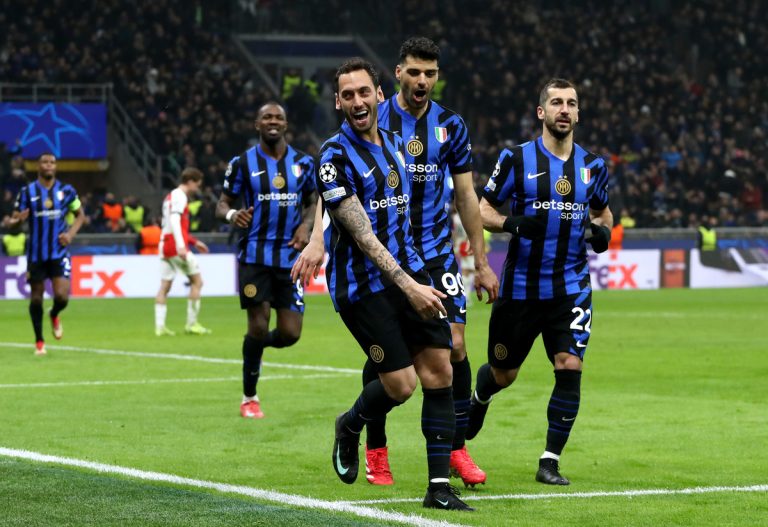The two teams that have collected the most Champions League titles, Real Madrid (14 trophies) and AC Milan (7 trophies), have advanced to the semifinals. Talks about the presence of “European DNA” in the two clubs are sticking out.
The term European DNA refers to the many European titles won by the two teams. In the last ten years, Real Madrid won the Champions League three times when they failed to win the La Liga title.
It is not surprising that every El Real has performed well in European competition while in La Liga it cannot compete with Barcelona or Atletico Madrid, its fans or football connoisseurs in general will cheer Real Madrid with the European DNA nickname.
Meanwhile, AC Milan showed its European DNA after getting rid of this season’s Serie A champions, Napoli in the quarter-finals. In biology, DNA or Deoxyribose Nucleic Acid, is a molecule that is closely related to inherited genetic traits. In football, genetics in a club that is always proud of is in the form of history and traditions that are built in a certain way. Of course it is the history of champions, the tradition of being victors.
That history and tradition, in the beginning, was not only built by creating a good coaching system and recruiting top players – although these two things are still a foundation. The political context, in the glorious history of a club, is often a key factor. Real Madrid, for example. El Real’s five wins in the first five editions of the Champions League (formerly known as the European Champion Clubs’ Cup) were not solely because they had great players like Alfredo di Stefano, Ferenc Puskas, Raymond Kopa, or Francisco “Paco” Gento.
Moreover, the President of Real Madrid at the time, Santiago Bernabeu, was very enthusiastic about the idea of establishing a competition for European teams. Santiago Bernabeu also had a big hand in the narrative of Real Madrid’s glory as the king of Europe. Madrid is the city where the initial rules of the Champions League were set on May 21, 1955. On that date, the Bernabeu met with FIFA envoys and representatives of Le Quipe as the initiator of the tournament for European clubs.
The Bernabeu was also the brains behind Real Madrid’s expansion in the economic field by reconstructing the Chamartin stadium which was later renamed in 1955 with a fantastic capacity, around 120,000.
The situation was even more favorable because, in the 1950s, the achievements of the Spanish National Team could not be proud of. After being ranked 4th at the 1950 World Cup, La Furia Roja did not qualify for the 1954 and 1958 World Cups. Spain, which was then led by General Franco, used Real Madrid instead of the Spanish national team to carry out soft diplomacy to the outside world. At that time, Spain indeed isolated itself from foreign policy.
Real Madrid’s victory five times in a row in the Champions League (1955-1960) was the regime’s way of integrating people who were experiencing economic difficulties and building an image to other countries that they had bargaining power through football and that they deserved to be involved in international politics. When Real Madrid started building its magnificent team, AC Milan was also preparing to become a mature team. They won the Scudetto in 1951, for the first time since 1907. In the Champions League, AC Milan made it to the semifinals in the first edition (1955).
AC Milan’s European DNA narrative began in the 1960s, when they won the 1962/1963 and 1968/1969 editions. They won both European titles with the same coach, Nereo Rocco. Rocco counts on great players. In 1961, he recruited Gianni Rivera, a fantasist who was very reliable. Rocco also recruited Dino Sani, a Brazilian midfielder who was also part of the 1958 World Cup winning squad, as well as Peruvian defender Victor Benitez.
Real Madrid and AC Milan also experienced ups and downs like other teams. There was a period when it was very difficult for them to get the Big Ear trophy back. To restore that glory, both teams rely on various methods, of course by bringing in reliable players and coaches.
After winning the 1966 edition, Real Madrid won the Champions League again in 1998 or more than three decades later. Although quite dominant in the domestic league (winning 15 La Liga and 7 Copa del Rey). The presence of the trophy feels less stable if you don’t get the title of King of Europe. Signing big players is still a tradition, and it was under Jupp Henynckes’ hands that Madrid’s star players lifted a seventh Champions League trophy; she’s a septima.
In the 1999/2000 season, El Real won the eighth trophy and, two years later, the ninth trophy – which was won under the same coach, Vicente del Bosque. After that, Madrid suffered a long famine of European titles. They returned to their tenth trophy – la decima. During this famine, Real Madrid President Florentino Perez brought in first-class players, namely Cristiano Ronaldo, Kaka, Karim Benzema and Fabio Cannavaro.
In the 1980s, AC Milan appointed Arrigo Sacchi as coach to handle the squad which at that time was quite weak. At that time, AC Milan was inhabited by future Italian stars like Franco Baresi, Carlo Ancelotti and Paolo Maldini, as well as the Dutch trio Marco van Basten, Ruud Gullit and Frank Rijkaard.
Sacchi managed to bring AC Milan back to glory in Europe. The Big Ears again managed to bring home twice in a row, namely the 1988/1989 and 1989/1990 seasons. In 1993/1994, Fabio Capello succeeded in bringing AC Milan to become European champions after defeating Johan Cruyff’s Barcelona in the final with a landslide score of 4-0. AC Milan’s last two titles were won with Carlo Ancelotti in 2002/2003 and 2006/2007. Ancelotti also managed to deliver the tenth trophy or la decima for Real Madrid in 2014.
The European DNA narrative sounds just right in the midst of increasing numbers of European clubs funded by masters from the Arabian Peninsula failing (or not yet) to win the Champions League.
City and PSG are the most valid examples. The two teams do not have a history of winning the Champions League like AC Milan and Real Madrid. Both teams are, in their own way, shaping and their European DNA. The two teams are both champions in the domestic league, but have never even lifted the big ear trophy since it was bought by an investor from Qatar.
Another example, for example, is Naples. E Partinopei’s appearance in Serie A was so stunning. However, in the Champions League, they were defeated by AC Milan in the quarter-finals. It seems that the way for Napoli to become a team to be reckoned with in Europe is still far away. And history has indeed proven that they couldn’t talk much in Europe even when they were still being strengthened by Diego Maradona.
But, on the other hand, having great history and traditions in Europe will not guarantee that a club will become the king of European football in the modern era. AC Milan is an example that rebuilding their European mentality takes time. Real Madrid, as is their tradition, have always managed to sign important players so they can continue to live up to their history; its tradition – besides having a business interest there. To be sure, forming and passing on European DNA is not easy.
ASL
















